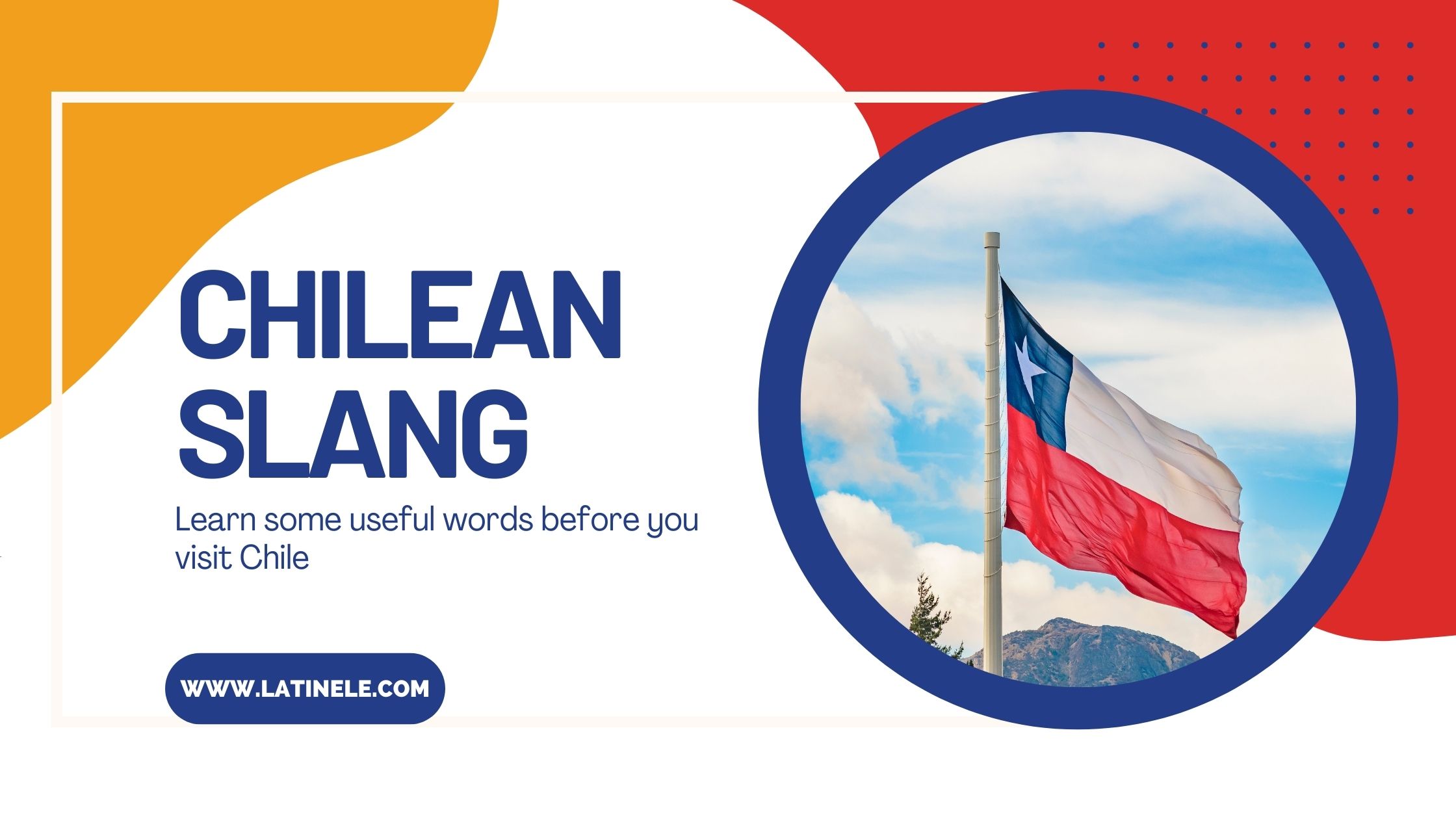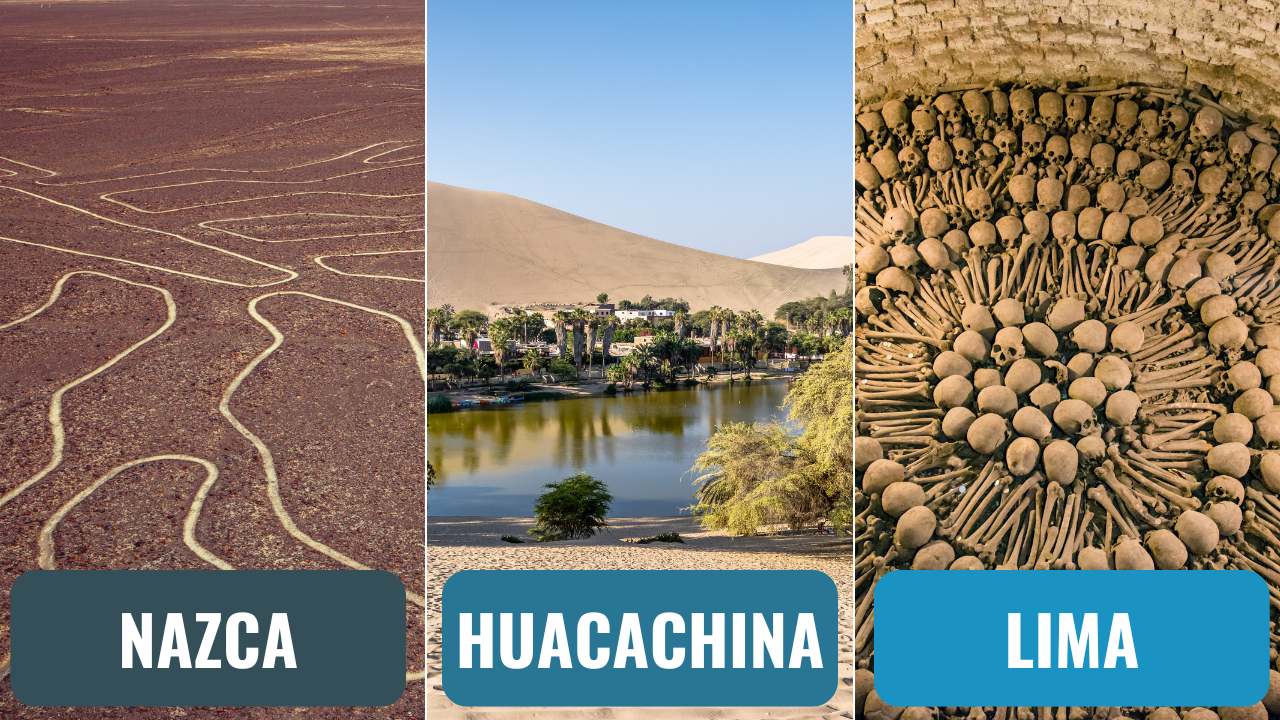The legend goes there is Spanish variety that is the most difficult to understand, a variety spoken in a South American country, isolated by lots of mountains and the Pacific Ocean. That country is Chile.
But is it true? Is it really more difficult than other Spanish varieties in the world? Probably the idea arises from the fact that most Spanish textbooks are created in Spain, and when they include cultural or listening activities, the “Chilito” dialect is almost never considered. That contributes to the little familiarity there is with this Spanish variety from South America.
Additionally, “Chilenos” themselves would normally say they don’t speak a good Spanish. We are the worst at encouraging people to study our variety!
Because of that, many language students might experience some frustration when visiting Chile: they were never taught about this country when learning Spanish.
“Los chilenos” speak a unique variety of Spanish that might feel unfamiliar—given its limited representation in teaching materials—but it’s not inherently more challenging than other dialects.
They say we speak fast, we don’t pronounce each letter, and use lots of slang…but have you ever heard a reggaeton song from Puerto Rico? Or have you watched a movie from Spain portraying street people? The traits perceived as difficult are pretty much the same in other countries.
That’s why in this blog we will teach you some Chilean slang words and phrases, so you start becoming more familiar with the Spanish spoken in Chile.
Learn a New Spanish Word Every Week
Increase Your Vocabulary with the “Word of the Week”
Subscribe to the Latin ELE Newsletter and receive a new word explained in context every week.
As a subscriber, you’ll also GET OUR BEST UPDATES about podcasts, videos, blogs, and much more to help you learn Spanish.
You can unsubscribe anytime—no hard feelings.
Common Chilean Slang Words
Huevón
You’ll hear this one a lot! It’s a colloquial way to address a friend. Example:
¿Cómo estái, weón? (How are you, dude?)
In this situation it means ‘dude’. But be careful, because depending on the context it can also mean mean stupid or idiot. Example:
No seas huevón, no hables tonteras (Don’t be stupid, don’t talk nonsense)
That’s very rude, so use it carefully in a casual conversation.
Bacán
In Chilean Spanish, this word is used as an adjective and means ‘cool’. Example:
Better Call Saul es la serie más bacán que he visto en mi vida (Better Call Saul is the coolest series I’ve ever watched).
Unlike other Latin American countries, where ‘bacano/a‘ is used, in Chile it’s just ‘bacán‘, so it doesn’t change depending on the word gender.
So whenever something is cool, start using ‘bacán‘ to sound like a local.
Po
A word derived from ‘pues‘. It adds emphasis to our assertion or command. Example:
¿Te gustó la película? — Sí po, buenísima (Did you like the movie? — Of course! It’s pretty good)
It’s spelled by native speakers as ‘poh‘ or ‘po‘. You’ll usually hear this word after ‘sí’ and ‘no’.
Cachar
This verb is one of those Chilean slang words you need to know for sure in Chile, as you’ll likely hear it a lot. It means ‘to understand’ or ‘to know’.
¿Cachái la nueva canción de J Balvin? — Sí, la cacho (Do you know the new song by J Balvin? — Yes, I know it)
It’s derived from the English verb ‘to catch’. We usually use the word as the filler ‘you know?’ = ‘¿Cachái?’
Luca
Luca is a word used to talk about money and describes amounts related to thousands. Example:
En el nuevo trabajo me pagan 500 lucas (At my new job they pay me 500.000 Chilean pesos).
So instead of talking about bucks, start using lucas when you visit Chile.
Carrete
Chileans don’t ‘salen de fiesta‘, they ‘van a carretes‘. Carrete is the slang term used to describe a party in Chile. Example:
Hay un carrete en la casa de Matías. Los papás salieron (There’s a party at Matia’s. His parents are out).
It’s also used as a verb, ‘carretear‘. Example:
Me gusta carretear los fines de semana (I like to party at weekends)
Pasarlo chancho
This is a common expression to say ‘to have a great time’ or ‘to enjoy yourself’.
¿Qué tal el carrete? — Bacán, lo pasamos chancho (What was the party like? — Pretty cool! We had a great time)
Translated literally in English, it doesn’t make much sense. ‘Chancho’ means ‘pig’ in Chile. To have a piggy time? Well, I’m sure pigs have lots of fun in the mud.
Condoro
When Chileans make a blunder, they have their own term for that: condoro. It refers to a stupid or careless mistake. Example:
Me mandé un condoro en el computador y ahora no funciona (I made a blunder on my computer and now it doesn’t work)
Hablar cabezas de pescado
It literally translates as ‘talking about fish heads’. This is a common expression for saying something is ‘nonsense’.
No me gusta hablar con Sofía, siempre habla cabezas de pescado (I don’t like talking to Sofía. She is always talking nonsense).
If you think about it, you normally get rid of the head before cooking some fish, so Chileans see the fish head as the useless part.
Pololo/a
‘Pololo‘ or ‘polola‘ is the word Chileans use to talk about their boyfriend or girlfriend.
El pololo de María es simpático (María’s boyfriend is nice)
Don’t Chileans talk about “novio/a” then? Well, yes… but that in Chile means you’re going to get married with the person. That’s a lot more commitment!
It also has its verb version, pololear. Example:
¿Quieres pololear conmigo?
More Resources to Learn Chilenismos
The words explained in this blog are just the tip of the iceberg and you won’t find them in a regular Spanish dictionary. If you want more material about this topic, here are some additional resources.
Learn more vocabulary and hear some examples in context with this YouTube video.
In this episode two Spanish speakers discuss the meaning of some chilenismos and provide more examples to teach Chilean phrases.
A Podcast to Learn Chilean Words and Phrases
The podcast Chilean Slang Explained is an audio guide to Chilean slang which teaches you words you should know before visiting Chile.
If you want to talk like a “hueón de Chile”, this is the show you’ll enjoy!



 Peru is full of wonders beyond Machu Picchu! In this episode of Basic Spanish Conversations Podcast (Upper-Beginner Spanish), we
Peru is full of wonders beyond Machu Picchu! In this episode of Basic Spanish Conversations Podcast (Upper-Beginner Spanish), we